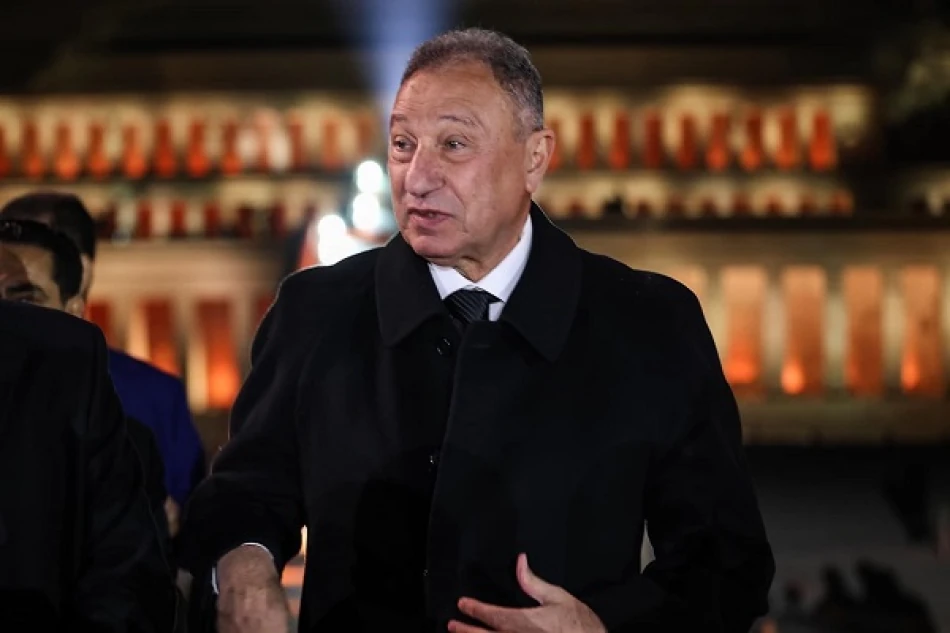
Ahly President Al-Khatib Stands Firm on Non-Candidacy Decision, Unresponsive to Calls
Al Ahly's Mahmoud El-Khatib Sparks Crisis as Board Rejects His Resignation
Egypt's most successful football club faces an unprecedented leadership vacuum as Al Ahly president Mahmoud El-Khatib's decision to step down for health reasons triggers intense behind-the-scenes negotiations. The 70-year-old's withdrawal from November's elections has prompted the board and club elders to launch an urgent campaign to reverse his decision, highlighting the institutional dependence on individual leadership that characterizes many Middle Eastern sports organizations.
A Health-Driven Decision Years in the Making
El-Khatib's formal request to the board on Friday to be excused from the upcoming November elections represents the culmination of a decade-long health struggle. Having undergone spinal tumor removal surgeries in 2012 and 2018, the veteran administrator has repeatedly ignored medical advice to step back from the demanding role he has held since November 2017.
"I have tried several times to distance myself from the pressures following doctors' advice, but each time successive developments forced me to return to daily work," El-Khatib stated in his official announcement. His decision to finally prioritize treatment signals a recognition that his health can no longer withstand the intensity of leading Africa's most decorated football club.
The Institutional Challenge
The crisis exposes a common weakness in sports governance across the region: over-reliance on singular leadership figures. El-Khatib's 50-year association with Al Ahly—as player, administrator, treasurer, vice-president, and president—has created an institutional memory concentrated in one individual. This mirrors similar succession challenges faced by other major clubs worldwide when transformational leaders step aside.
Board's Unprecedented Rejection
In a move that underscores El-Khatib's irreplaceable status, the Al Ahly board issued a categorical rejection of his decision. Board sources revealed to AFP that members have been attempting to contact El-Khatib since Thursday evening, though he has refused to take their calls.
The board's refusal to even discuss alternative candidates represents a high-stakes gamble. By putting all their efforts into reversing El-Khatib's decision rather than preparing succession plans, they risk being caught unprepared if he maintains his stance.
Strategic Implications for Al Ahly
El-Khatib's tenure has coincided with significant achievements across sporting, infrastructure, and financial dimensions. However, his departure comes at a challenging moment: Al Ahly currently sits 13th in the Egyptian Premier League before the sixth round of matches—an unusually poor position for the continent's most successful club.
Sources close to El-Khatib revealed he had hoped to continue until the completion of Al Ahly's new stadium, planned for approximately five years from now. This long-term vision now faces uncertainty, potentially affecting major infrastructure investments and strategic partnerships.
Broader Context in Egyptian Football
The leadership crisis at Al Ahly reflects broader governance challenges in Egyptian football. Unlike the corporate governance structures increasingly common in European clubs, Egyptian football remains heavily dependent on individual personalities and traditional power structures.
El-Khatib's situation also highlights the physical toll of sports administration in high-pressure environments. His decision to prioritize health over ambition could set a precedent for other aging sports leaders across the region who have similarly ignored medical advice to maintain their positions.
What Happens Next
The coming weeks will determine whether Al Ahly can navigate this transition successfully or face a destabilizing power vacuum. The club's general assembly, scheduled for next Friday to discuss internal regulations and call for November's elections, becomes a crucial moment for institutional decision-making.
If El-Khatib maintains his position despite board pressure, Al Ahly will need to rapidly identify and prepare alternative leadership—a process that could prove challenging given the board's current refusal to consider other candidates. The outcome will likely influence how other major Arab sports institutions approach succession planning and the balance between individual leadership and institutional sustainability.
Most Viewed News

 Sara Khaled
Sara Khaled






